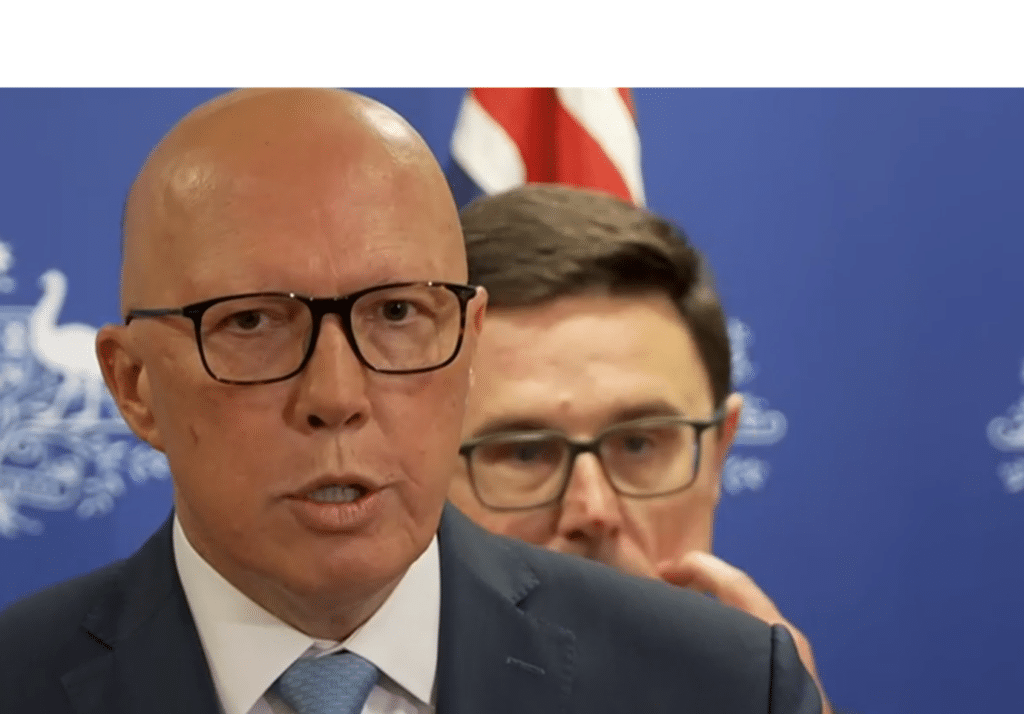The Coalition’s plan for nuclear power would cost more than $300 billion over 25 years, Peter Dutton said on Friday as he announced the long-awaited costs of his controversial energy plan.
Dutton has pledged to build seven publicly-owned nuclear power plants in locations across the country if he is elected as Prime Minister next year. The nuclear policy suggests Australia would see the first nuclear power plant operational by 2036, a date which has been roundly questioned by experts.
Dutton’s estimated cost of the nuclear plan comes from modelling produced by the private firm Frontier Economics. Dutton has been slow to release the details and costings of the plan, which would pivot Australia away from relying on renewables.
Dutton has also said the cost of his plan would be $263 billion cheaper than the cost of Labor’s energy plan over 25 years, according to the estimates from Frontier Economics. Labor and many experts have disputed this figure.
At a press conference on Friday morning, Dutton said the plan would underpin the “economic success” of Australia over the next decade. He claimed it would be 44 per cent cheaper than Labor’s plan to reach net zero by 2050.
In response to the Coalition’s announcement today, the Climate Council labelled Dutton’s plan as “misleading”, with Climate Council CEO Amanda McKenzie saying “no amount of dodgy accounting can change the facts”. McKenzie referred to figures from the CSIRO released this week that indicate nuclear is double the cost of renewables.
“Peter Dutton’s nuclear numbers have more holes than Swiss cheese, leaving out big ticket items like the costs of dealing with radioactive waste,” McKenzie said on Friday.
Meanwhile, economist Nicki Hutley said it was “shocking” to see the Coalition mislead Australians on the cost of nuclear.
“If we’re going to debate the economics of energy it must be based on real-world evidence–not dodgy modelling that obscures the real price tag,” she said.
“The CSIRO tells us that nuclear energy will cost twice as much as renewables, and the risks of further budget and bill blowouts are simply not worth it. International experience has proven that nuclear is a financial black hole, with the average project costing more than double its original estimate, and projects like the UK’s Hinkley Point C costing triple.”
When asked on power price reductions in the short-term, opposition energy spokesperson Ted O’Brien said no figures were available, but reductions in prices should be expected in the longer term.
“It is not a pricing analysis, but as Frontier Economics makes it very clear in the report, that [power] prices, ultimately, reflect costs over time,” O’Brien said.
Dutton’s plan relies on many assumptions, including that current laws could be changed in jurisdictions across the country to lift bans on nuclear energy, and that the future demand for electricity in Australia would not increase as much as the government expects in the coming years.
Asked about the overturning the current state-based bans on nuclear, Dutton said: “Well, we are in opposition so we’re not in a position to negotiate contracts with governments that have been elected.”
On Friday morning, Energy Minister Chris Bowen said the Coalition’s plan was a “fantasy”.
Women are wary of nuclear’s high cost, high risk
There is a stark gender divide in Australia over nuclear energy, with recent polling showing just 26 per cent of women think its use would be good for Australia, compared to 51 per cent of men.
This gender divide is consistent across age groups, with women mostly considering nuclear energy to be high cost and high risk.
“With abundant sun and wind, Australia does not need nuclear in our energy mix, nor do most voters want it,” Australian Conservation Foundation Chief Executive Kelly O’Shanassy said when the polling was released.
“Women are strongly opposed, recognising that going nuclear would delay the transition from coal and gas, increase household power bills, introduce the possibility of catastrophic accidents and create a multi-generational burden with managing high-level radioactive waste.
“When men are pressed about these realities and consequences, they too start to see reason that nuclear is not right for Australia.”


